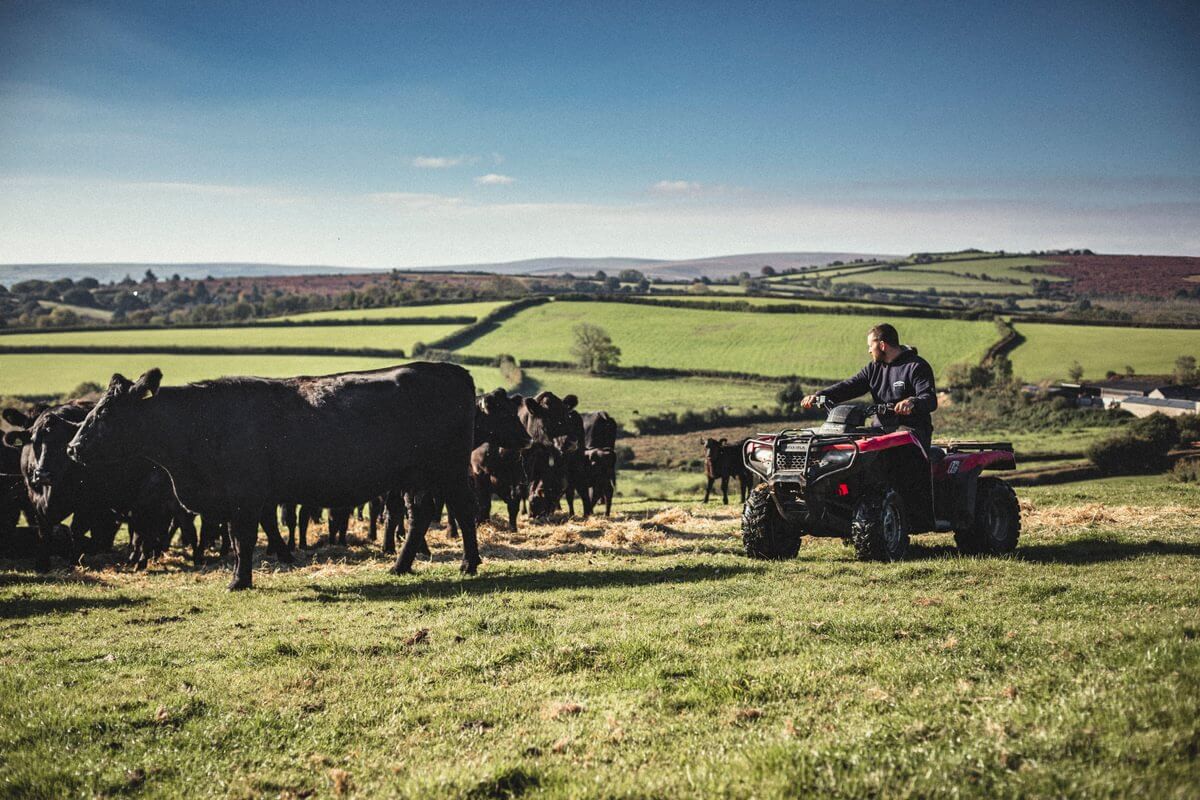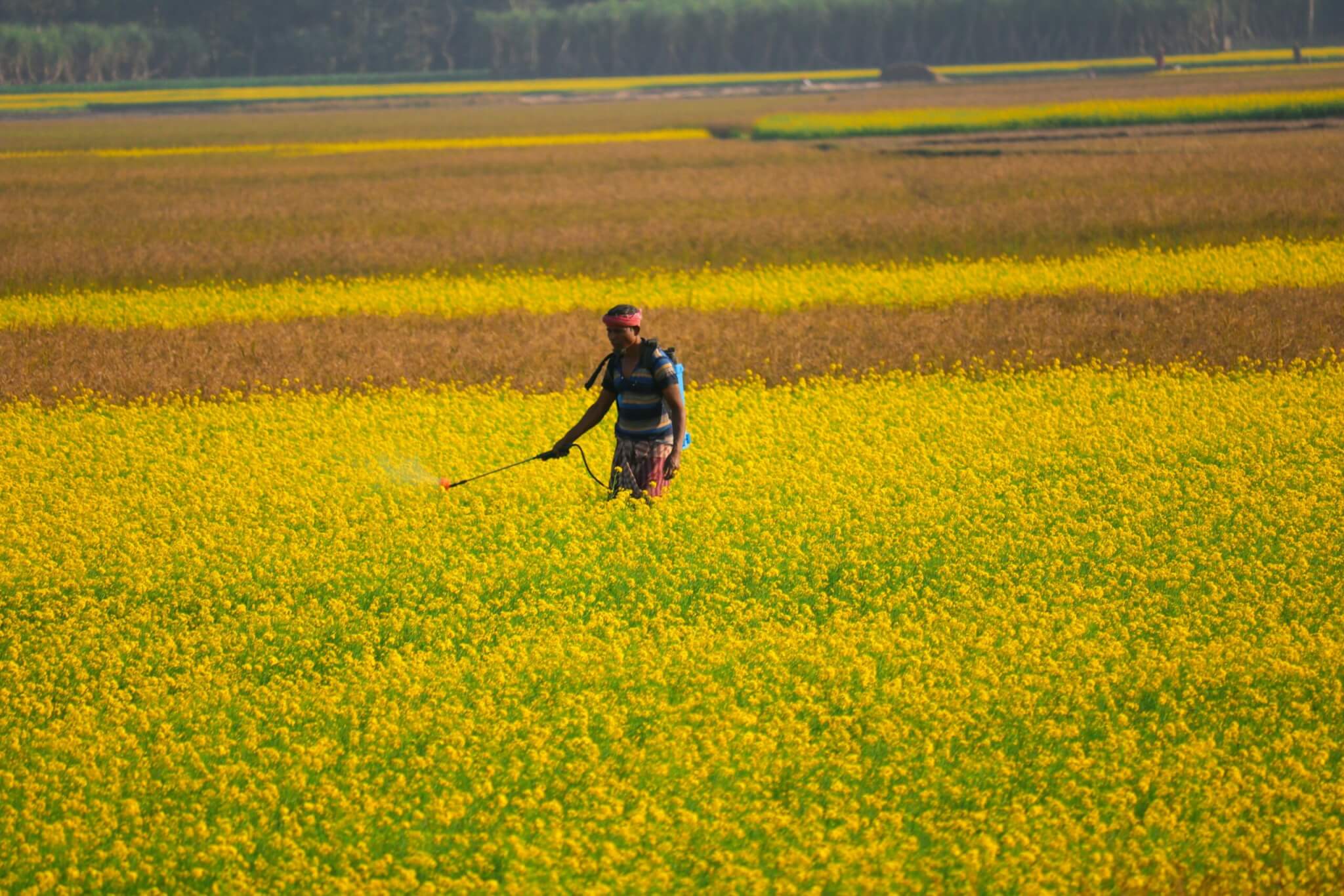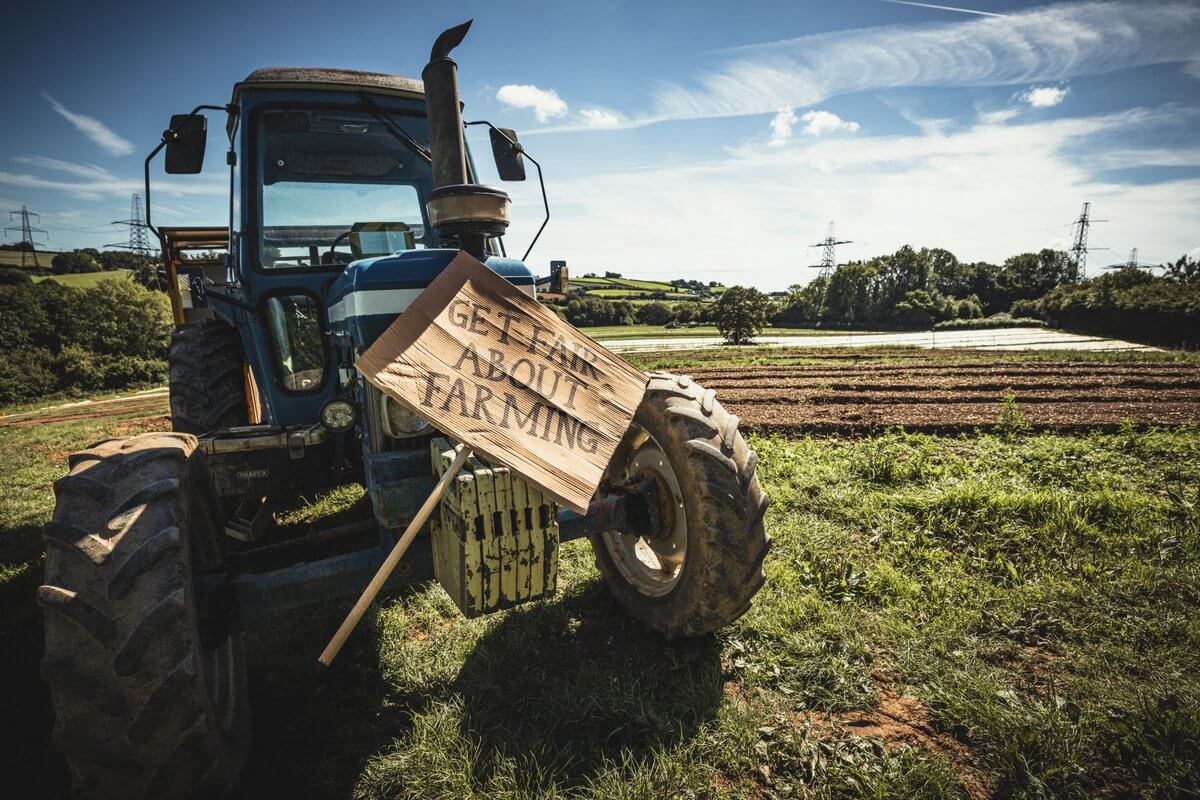The dust is just settling on the first Labour budget in 14 years, with the British farming community now considering the real consequences of Rachel Reeves’ actions on an already fragile food system. Certain announcements were welcomed by some with a sigh of relief, while a particularly controversial clampdown – aimed at inheritance and land ownership – is causing outrage among others.
With the budget for farming protected at £2.4 billion a year (despite a multimillion pound underspend), £1.8 billion for environmental land management (ELM) schemes, £400 million for tree planting and peatland restoration – as well as a soft drinks industry levy rise and fuel duty, frozen for a year – you would think that there are a few things to be cheery about.
However, it was less than the National Farmers’ Union’s (NFU) demand of £4 billion a year for DEFRA, despite the ministry calling it the “largest budget ever directed at sustainable food production and nature’s recovery in our country’s history.”
Post-budget, conservationists and the Agriculture and Horticulture Development Board are still talking about a yawning gap – between what’s needed to fix our broken food system while also boosting nature recovery – and what is presently on offer. Money which is also being vastly, rapidly eroded by inflation.
“Funding for agriculture is still seriously limited. Rachel Reeves had a revelation on the NHS in the Autumn statement. She now needs to have one on UK farming and food. This certainly wasn’t demonstrated in the budget,” says Patrick Holden, CEO of the Sustainable Food Trust.
Controversy on inheritance
What was shown was a taste for a controversial tax rise with a raid on agricultural property relief, and an end to inheritance tax exemptions. This has raised the hackles of many farmers, including many of the land-owning glitterati from Jeremy Clarkson to James Dyson (the latter of whom owns 36,000 acres of farmland across England).
Before the budget, farmland and the family farmhouse could be passed on to the next generation without a single pound going to the Treasury. By April 2026 there will be a 20 per cent tax on assets over £1 million. Along with Business Tax Relief, this could net the government £520 million by 2029-30, according to reports citing the Office for Budget Responsibility.
Some farmers are spitting blood, calling the new tax a “grave betrayal of British farmers.” This is echoed by the Country Land and Business Association, while the NFU has called on British growers to take part in a “mass lobby of their MPs,” calling it an “awful family farm tax.”
Anecdotally, other farming families are concerned about the future viability of their business; with elevated land and house prices in some parts of the country, the £1 million threshold can be easily reached, without taking into account the eye-watering overheads, debt, inflation, operational costs and low profit margins for many of the UK’s farmers.
The result of the 20 per cent tax could mean reduced investment in farming or environmental schemes as farmers must save for their taxes. Family farms may not be handed down through the generations, but sold off and consolidated into much larger holdings.
Conversely, new entrants might find it easier to get hold of land in a currently difficult environment.
“This will not be as destructive as the outcry has suggested,” advises Charlie Taverner, Policy Lead for Farming Futures at the Food, Farming and Countryside Commission. “This all might encourage earlier conversations about succession and allow the next generation to step up. Those could be genuinely positive effects.”
In the coming months it is likely that many more farmers will now be booking an appointment with their financial and tax advisor. If they hand the farm over to heirs seven years before their death they don’t pay tax; new life insurance policies spread over decades could also help cover the tax bill.
Once you include allowances for a spouse and property, the relief gets bumped up north of £2 million; any tax is also repayable over ten years. If you look at the government’s figures on agricultural property relief for 2021/22, the vast majority of claims – 93% – were below a value of £2.5 million.
“Currently there is a tax advantage to just holding land – not farming it – and it’s sometimes being used as a tax dodge. This needs to change. The budget will help and may shift the balance away from farm ownership, towards farm practice,” explains Holden.
A brazen tax haven
The issue to date has been with wealthy investors, both private and institutional, as well as large estate owners using the British countryside as a brazen tax haven to preserve their wealth down the generations. The new inheritance tax rise is aimed at closing this loophole.
The numbers stack up. Data from Strutt & Parker, a leading estate agent specialising in farmland and rural estates, shows that 60 per cent of land marketed in 2023 was bought by private and institutional investors, as well as so-called ‘lifestylers’. It is too hot a ticket to miss – with the average price of arable land at £11,000 an acre in the first half of 2024, this is close to record levels – it’s been an appreciating asset. Land is money and that’s the issue.
At the same time, almost two thirds of all payouts from inheritance tax relief between 2018 and 2020 went to around 200 estates per year, each claiming more than £1 million in relief, with an average estate value of £6 million, according to the Centre for the Analysis of Taxation (CENTAX).
The recent report adds: “Among estates benefiting from agricultural tax relief less than half (44 per cent) of individuals had received any trading income from agriculture at any point in the five years prior to death. Income from agriculture made up less than a quarter of their income on average.” I suspect Rachel Reeves’ Treasury team read the CENTAX report and smelt a rat.
Let’s not forget this exemption has only been around since 1992. Agricultural Property Relief (APR) was charged at 50 per cent before that, according to parliamentary records. Other countries tax land through inheritance. There is also scant data on whether tax relief actually achieves the objective of preserving family farms, since the next generation has the right to sell immediately after the owner’s death (also free of any tax).
The fact is Labour’s budget touched a raw nerve among British farmers, rattling the very social fabric and infrastructure of agriculture, which is already broken.
But let’s not forget that the sector is dealing with unprecedented challenges. The high cost of borrowing, the cost-of-living crisis, the cost of labour and inputs, sky-high land prices and farm-gate prices that aren’t rewarding, all while supermarkets farmwash, as well as drill-down on contracts and phase out traditional farm payments.
It’s a long, bleak list and when your back’s against the wall, this latest move will feel, to many, many farmers, like the final straw.









Given your last sentence, what are you saying: that the Labour government has finished off family farms, or that family farmers should suck it up and see the opportunities? A steer please. No pun intended.
Even with the proposed changes to APR it will still be financially advantageous for those with millions/billions of £’s to move it into farmland. Higher rate tax is less than the new 20% APR rate. This change has missed it’s intended target and scooped up the wrong people.
When the family farms sell their land to pay IHT it won’t be bought by other farmers, or new entrants to farming, it will be bought by private equity firms investing on behalf of an unknown financial backer.
The question is who do we want to own our countryside? Better to work with the ‘devil we know’?
Whether or not the thresholds have been set at the right level, which is an area for discussion and possible adjustment, the proposals do seem very unfair on a single farmers – perhaps widowed or divorced or single for some other reason -who has children waiting in the wings to succeed him or her. They do not have the double allowances that a married couple has.
If an agricultural tie is in place, the farmhouse will not be worth the same as a bog-standard house of similar proportions. It it isn’t, well …
And there are additional allowances for passing the house to children, so single farmers are not hit immediately.
I have no issues with this tax. I support incentives for sustainable farming. We also put our money there – two of us spend about £650 a month on food – and we are vegetarians (except for a few oz of prosciutto and the occasional sausage) who don’t buy prepared meals and we rarely eat out. (The dogs eat well too …).
I appreciate farmers’ concerns, but we are no longer in a post-war Battle for Food. Agriculture is big business, built on a high-value asset (land), and should be treated like any other business. Allowing landowners – increasingly companies, funds and high wealth individuals – not to pay their fair share of IHT is simply unfair to all other inheritors, be that of businesses, property, or anything else. And if it helps shake up land ownership to allow new entrants into the market, that can only be a good thing! New blood is desperately needed in farming; a new generation who want to change the UK food system and their surrounding landscapes for the better. All that’s needed here is proper payment for delivering those public goods – if farmers are to properly steward land for all our benefit, then there should be MORE, not less money to pay out than under the CAP. The last (and now this) government seem to think public goods should be delivered at farmers’ expense, and that is clearly unfair.
This is a land grab for the elite to purchase farm land and put solar panels on in the future to offset their carbon foot print so they can carry on flying their private jets when the point system will be brought in. While we will be restricted to not flying and not being able to travel because we haven’t got any carbon offsets. This is part of the 2030 agenda. Look what is happening to all the farms across Europe, its not to stop Dyson and Jeremy from paying their share of tax.
Speaking to GB News, former Labour aide Mr McTernan said he is “personally in favour” of doing to farmers “what Margaret Thatcher did to the miners” and “close down an industry”.
“This is an industry we can do without,” he said.
“If people are so upset they want to go on the street and spray slurry on them, then we don’t need the small farmers.” (12/11/24)
However, farmers and unions say it will be much more wide-ranging, with the potential to affect 75% of food production in the UK and making the cost of British food more expensive.
When your government doesn’t think the country should be self sufficient in food and energy everybody is in big trouble.
WAKE UP – No farms No food
Quite agree. Could you start an online campaign so we can all send your letter to our local MPs?
I am not a farmer, but I am surrounded by farmers where I live. Not only do I see on a daily basis how hard they work – often with meagre return for very long hours – but I understand fully how the continuity of ownership of family farms is an important glue to hold rural communities together. I’m not entirely sure what the government’s motives were in making the changes to inheritance tax for farms. If it was solely to stop very wealthy people using land for tax avoidance purposes – and we’ve seen floods of crocodile tears from some of them recently – driving up the price of land in the process, who can reasonably argue with the principle? But choosing APR as the mechanism for doing this through new thresholds seems an unnecessarily complicated way to go about things, especially as there is now so much argument and, it seems, disagreement between government departments, about what those thresholds should be. The main winners here will be the accountants and tax advisors. It is also ironic, coming from a Labour government, that single parent farmers – divorced or widowed or single for some other reason – who wish to pass farms onto their children are so harshly discriminated against by not having a spouse with whom to share the allowances. Surely, the best thing now is for the government to concede that it has acted hastily (albeit, maybe, in attempting to correct an important tax anomaly), for militant farmers to cease threats of blockades etc (which will only erode the level of public support they currently enjoy) and for the NFU and other farming bodies to ask government to work with them to find some other way of achieving what I think was the point of all this. I have already read other suggestions, e.g. a farm residency requirement and a demonstrable commitment by heirs to continue farming in return for continuing concessions on inheritance tax. If such a discussion can take place with a positive outcome, we could see land prices fall which will bring more young entrants into farming which it badly needs. It would also curb the populist right-wing from making hay with this issue (pun intended) for purely political purposes which they are already trying hard to do.